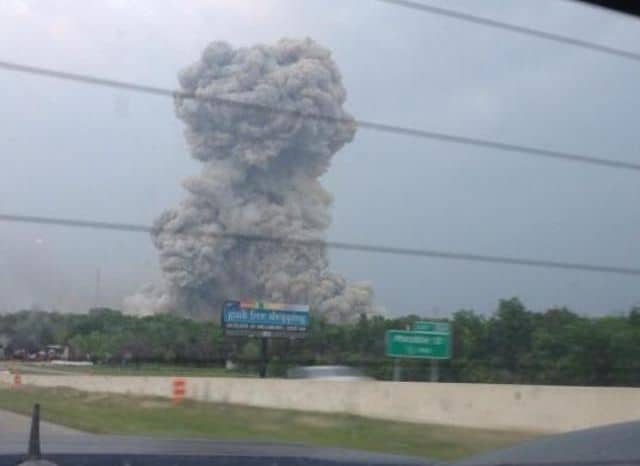Unless you live under a rock, you heard about bombs at the Boston Marathon and the explosion in West, Texas, last week. My thoughts and prayers continue to go out to the people of Boston and West.
Today, I’d like to talk about our responsibilities (and expectations) during times of crisis.
We live in a social world, and as digital marketers, it’s important to realize that an event that happens several thousand miles away can still impact us personally.
Particularly in the area of social media.
If you think that’s an overstatement, read this excerpt from an AdAge post published the day after the attack:
“The two bombs that ripped through the Boston Marathon, leaving at least three victims dead and at least 130 injured Monday afternoon, also touched the marketing and media community. The explosions led to local ad agencies scrambling to account for staffers in the races, while Twitter served as an information source as many brands went dark for several hours on social media in the wake of the tragedy.”
In particular, notice the last sentence. “Brands went dark for several hours on social media.”
Here’s a tweet from a marketer in the afternoon of the Boston crisis:
Companies should be sensitive and not use social channels for marketing messages right now. Call your agencies please.
— Raj Suvarna (@rvsuvarna) April 15, 2013
This guy’s reach is fairly small, with 559 followers (at the time of this writing), so he didn’t reach many people with his message.
Crazy Egg missed it entirely, which is why, later, he sent this:
@crazyegg Out of respect and sensitivity, you shouldn’t be tweeting marketing messages.
— Raj Suvarna (@rvsuvarna) April 15, 2013
Now, to be fair, Crazy Egg wasn’t posting marketing messages. It had scheduled tweets about that day’s article, and they went live after the bombing.
But even that activity incurred some negative attention.
Respect in the social internet
Is Raj right? Should the world go silent in the wake of an accident that’s 1000 or more miles from where you live?
The stores don’t stop selling because there’s a tragedy.
The internet doesn’t stop working.
But we live in a social world. We’re digital. We’re connected. And when you have real-time relationship with people all around the world, it seems smaller somehow.
Personally I struggle with this. If we stop using social media every time a major event occurs somewhere in the world, we’ll never be able to communicate. (I’m not alone in this feeling. I saw this post on Friday, just before I uploaded the one you’re reading.)
You see, I live in Dallas. If it wasn’t for the internet, I wouldn’t have heard about the incident in Boston until hours later. But because of the internet, I’m closely connected to those people. (In fact, one of the writers I work with lives just a few blocks from ground zero.)
The incident in West, Texas, is closer to home, My Facebook stream was filled with posts about it, but when I checked Twitter, I didn’t see one post about it.
Obviously, Twitter doesn’t shut down for every tragedy.
Nevertheless, it doesn’t hurt to pay our respects when a crisis occurs, just as we might if our next-door neighbor were involved in a tragedy.
When neighbors are in crisis, we’re respectful. We offer to help, bring food, or whatever might seem appropriate.
It’s no different in social media.
In the wake of a tragedy, there’s no better way to keep up than through social media. We need to step aside, allowing the channels to remain open for our neighbors in crisis.
(Read this Washington Post article about this very issue.)
How to manage your social media after a tragedy
Of course, you get to decide your own social media crisis policy: what constitutes a crisis and how it will change your marketing calendar.
But when you do decide to implement it, there are four things you should consider.
1. Stop marketing messages
If you schedule posts to publish throughout the day, stop them.
For me, after the Boston bombing, that meant going into Buffer and removing Monday from my schedule. The next morning, I added Monday back into my schedule, so I could resume my normal posting.
I also had to go into HootSuite for the two Twitter accounts I manage and reschedule the posts I had planned for the rest of the day.
When you do this, don’t distinguish between marketing messages and content curation. It’s all the same. The idea is to go dark after a major tragedy so tweets and posts about the event get priority.
- Revisit all your sources for scheduled posts.
- Delete or reschedule them.
2. Hold off on your sympathy message
In the wake of a major tragedy, people use social media to get information, find solace, and connect with missing friends and family. So don’t clutter the stream with your sympathy posts.
Wait.
You can post something later, even the next day. It can appear self-serving to post your message in the hours immediately following the event.
These are appropriate posts, when the time is right:
Praying for all those affected by the #BostonMarathon tragedy. Boston residents are offering their homes and hearts. yhoo.it/Zu2xQ4 — Appreciate Gratitude (@2thank) April 16, 2013
***
All my thoughts to the affected by #bostonmarathon. All the support from Barcelona. #prayforBoston — Marc Bartra (@MarcBartra91) April 16, 2013
3. Do NOT try to turn the event into a marketing opportunity
You may be tempted to take advantage of the spike in chatter around an event. But it’s in poor taste to make light of a tragedy.
(Read here about four brands that didn’t understand that and are now paying for it.)
Do you have to avoid the subject altogether? No. HubSpot’s next-day post was perfectly appropriate. It was little more than a note to let followers know why there wasn’t a marketing blog post that day. Here’s an excerpt, to give you an idea of how it went:
“Yesterday ended very differently. There is an entirely new meaning to heartbreak at the Boston Marathon, and it shook everyone here at HubSpot and throughout New England to the core. Before we return to our blog’s regular content, we wanted to take a moment as a company to express our sincere condolences to everyone impacted by yesterday’s tragedies.”
4. Get involved as appropriate
One word of warning comes from this tweet:
Beware of fake accounts asking for retweets, texting or donations to support victims of the Boston marathon tragedy on-msn.com/15clL3S — Action Fraud (@actionfrauduk) April 16, 2013
But do get involved if you have something valuable to offer. Here are a few ideas:
After Hurricane Sandy in New York, a writer friend solicited sales of his book. All proceeds were donated to the relief effort.
Or, if you are in the area and are offering help or resources, by all means, post it. Something like this:
If you’re in Boston and can donate blood, here are the locations: redcrossblood.org/MA #BostonMarathon #tcot #Boston #Help #RedCross
— Craig Bowden #MV4F (@CraigBowden2020) April 15, 2013
It’s a small, small world
It’s simple really.
We need to realize how connected we all are. Social media makes this a small, small world, and even when we’re thousands of miles away, our actions can make a difference.
What are your thoughts about social media in times of crisis? Do you have any suggestions for how to manage it?
Image courtesy of TribFox40


